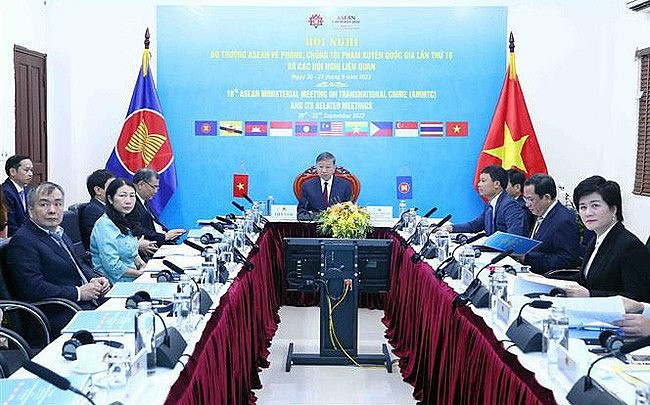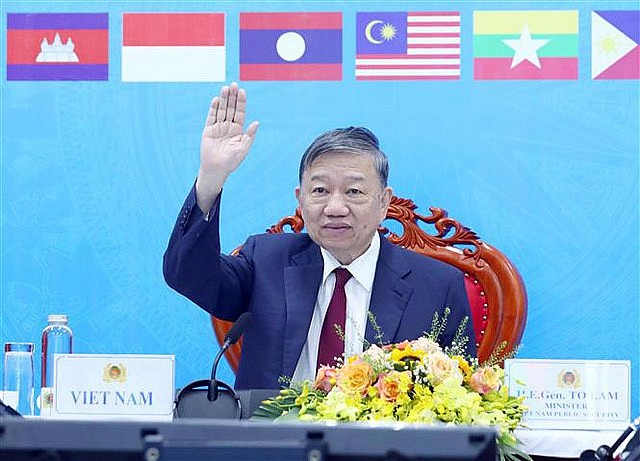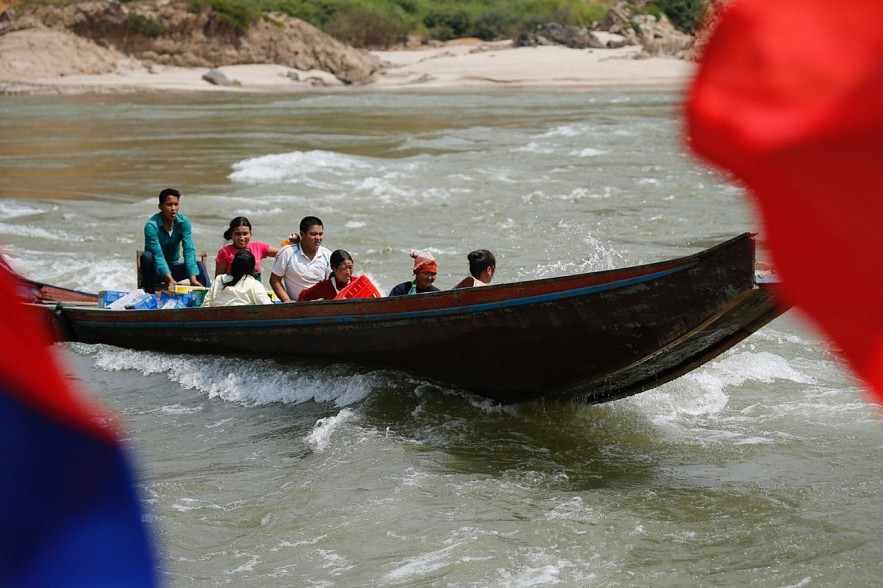 |
| At the virtual 16th ASEAN Ministerial Meeting on Transnational Crime (AMMTC) and related meetings. Photo: VNA |
The minister made the pledge while addressing the plenary sitting of the virtual 16th ASEAN Ministerial Meeting on Transnational Crime (AMMTC) and related meetings on September 21, VietnamPlus reported.
He suggested ASEAN law enforcement agencies consolidate and promote effective and substantive implementation of joint programmes and plans to tackle transnational crime within existing ASEAN multilateral cooperation mechanisms.
Lam also highlighted the importance of boosting information and experience exchanges regarding the fight against crime, especially drug, cyber and hi-tech crime; and of teaming up to verify, chase, arrest and extradite wanted persons within the framework of bilateral and multilateral cooperation.
The minister proposed the sides involved promote the negotiation and signing of related bilateral pacts such as treaties on mutual legal assistance in criminal matters and extradition.
 |
| Minister of Public Security Gen. To Lam. Photo: VNA |
He added that it is also necessary to deepen collaboration with ASEAN dialogue partners in the field, and organise training courses and conferences for law enforcement officers in a bid to maintain the support of dialogue partners in terms of human resources and policies for dealing with common security threats.
During the session, participating ASEAN countries discussed the results of the fight against transnational crime in each nation and the promotion of cooperation in this area, contributing to ensuring security, peace and stability in the region.
According to the Organisation for Economic Co-operation and Development (OECD), ASEAN has adopted a framework known as the ASEAN Border Management Cooperation Roadmap to improve policy and practical collaboration to address transnational crime at and along borders.
 |
| Economic growth has created opportunities for organised criminal groups and traffickers. Photo: OECD |
Rapid economic development connected to free trade agreements and the expansion of cross-border infrastructure has deepened economic integration between countries in Southeast Asia over the past two decades. But while growth has raised living standards and increased GDP it has also exposed vulnerabilities and created opportunities for organized criminal groups and traffickers. Transnational organised crime networks have developed complex supply chains across the region and they are often able to circumvent or evade authorities whose jurisdictions stop at national borders. Responding requires cooperation at different levels between governments and law enforcement agencies, including at front-lines and borders.
The ASEAN Border Management Cooperation Roadmap consists of nine action items to strengthen the capacity of law enforcement agencies and address existing barriers to cooperation./.
ASEAN seeks to boost intra-bloc trade
Enhancing intra-ASEAN trade and investment towards a cohesive and responsive ASEAN is one of the shared topics by many regional officials, researchers and policymakers.








